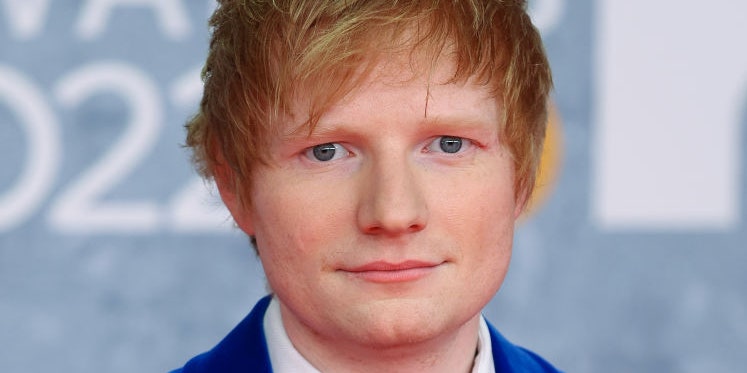Ed Sheeran revealed he struggles with disordered eating in a new interview from Rolling Stone published Tuesday. The 32-year-old singer and songwriter also denounced the stigma associated with eating disorders among men.
“I have a real eating problem,” he told Rolling Stone. Sheeran explained that, like his mentor Elton John, he’s had issues with binge eating and purging, and added that it’s been difficult to speak about these problems because of the shame associated with them. “There’s certain things that, as a man talking about them, I feel mad uncomfortable,” Sheeran said. But this is one of the reasons he’s choosing to share his story, he added: “It’s good to be honest…because so many [men] do the same thing and hide it.”
This stigma is fueled by outdated ideas about who can—and can’t—have an eating disorder, Kimberly Dennis, MD, a member of the Clinical Advisory Council at the National Eating Disorders Association (NEDA) and the co-founder of SunCloud Health, tells SELF. “It’s been a pretty persistent, long-held myth that [eating disorders] are diseases that impact skinny white girls,” Dr. Dennis says. “That harms large portions of the population, [including] men.” According to data from NEDA, about a third of all people with eating disorders are men.
Because most of the messaging around eating disorder warning signs has traditionally been focused on women, many men don’t understand that they’re susceptible to these diseases, Dr. Dennis adds. Often, when they start to experience symptoms, “The men themselves don’t know it’s a disorder,” she explains. “They often feel shame about it because they think, This is a women’s disease. Why am I experiencing this?”
Even men who know they have a problem may be less likely to try to get help, she adds. “Because of the concepts of toxic masculinity, the cultural norms of what a man is—a lot of that messaging and the psychosocial aspects of being a man in our culture can interfere with a man seeking eating disorder treatment,” Dr. Dennis says. Research has shown men are less likely than women to receive a mental health–related diagnosis, and traditionally masculine social expectations may be to blame.
Even some men who turn to their doctors for help may not get the care they need, she adds: “This a myth that pervades most medical specialties, and primary care doctors get very little training in eating disorder [protocols], so unless it’s more of an extreme case, they often miss the diagnosis.”
This is especially troubling, given the huge toll an untreated eating disorder can take on a person’s overall health and well-being, says Alissa Rumsey, MS, RD, founder of Alissa Rumsey Nutrition and Wellness and the author of Unapologetic Eating. She adds that among all mental illnesses, eating disorders are the second deadliest, second only to opioid use disorder. “Untreated eating disorders can go on for years, if not decades, and contribute to physical and mental health issues,” she tells SELF.

